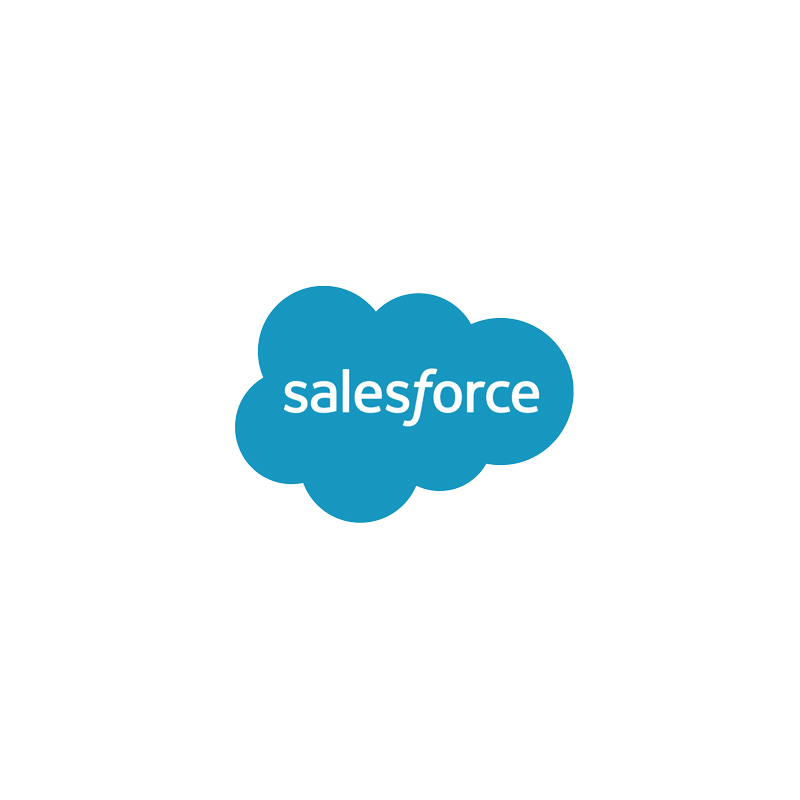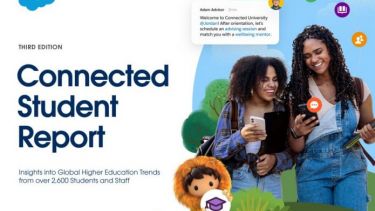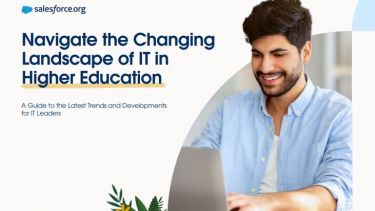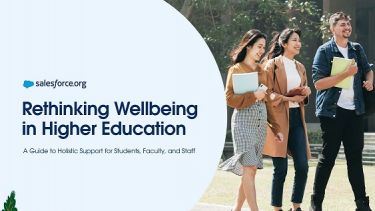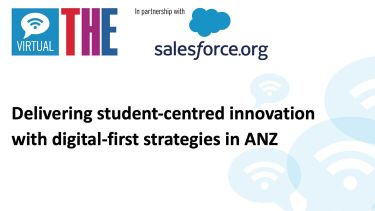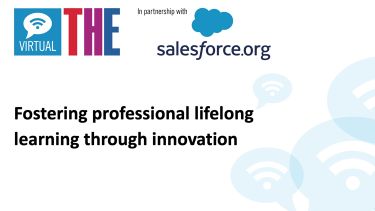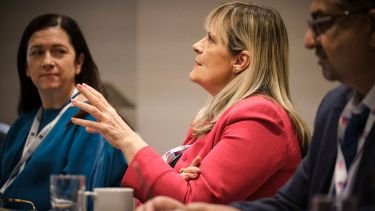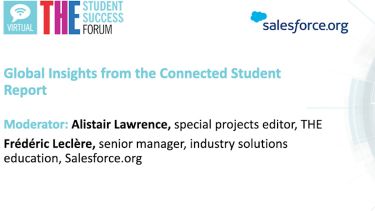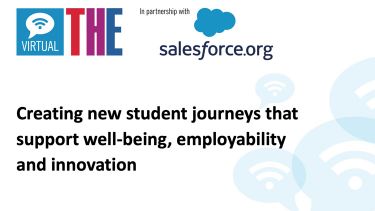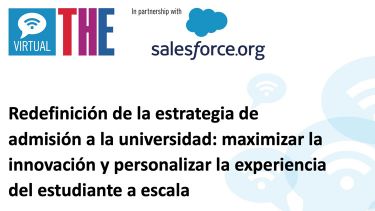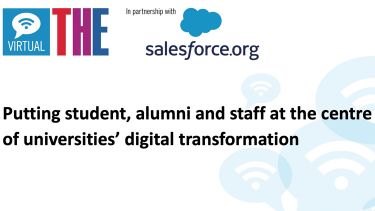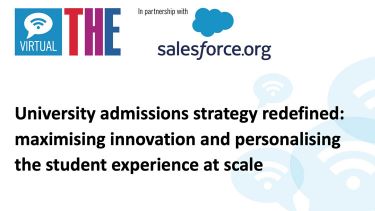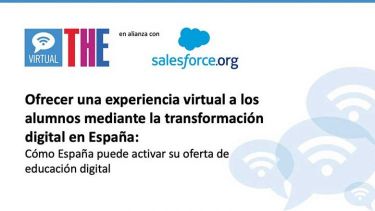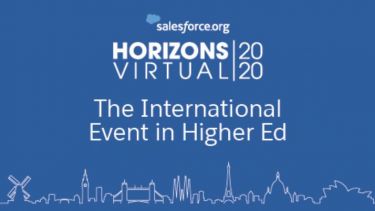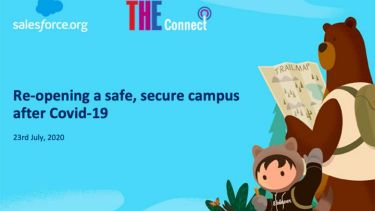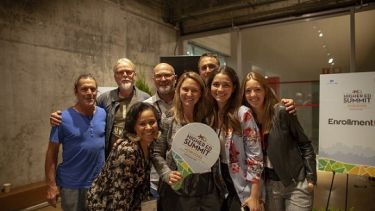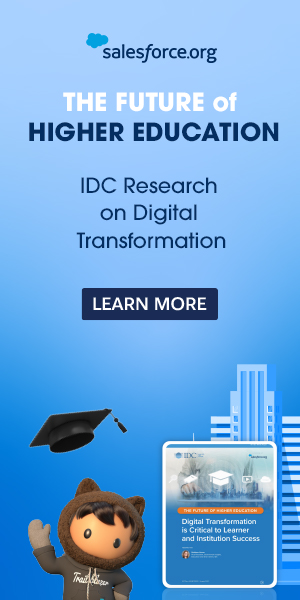
In recent years, data has come to play a more significant role at higher education institutions. However, human input is still required to interpret and use this data effectively
With the post-pandemic adoption of more online technologies at higher education institutions, data has come to play a greater role. During a round-table discussion hosted by Times Higher Education and Salesforce as part of THE Digital Universities Week UK 2022, academics and industry experts came together to discuss how data can impact feedback, monitoring and communications to improve student well-being and engage more effectively with cohorts.
“Most of the students I work with are postgraduate, many with 10 or more years’ experience in the workforce already,” explained Aaron McKenna, managing director at University College Dublin. “There’s a real cut-to-the-chase mentality with this cohort, which rolls into how we communicate with them and how we deliver learning.”
“The challenge for us is helping students find the right course for them without losing that personal touch,” said David Hayes, chief data officer at the Open University. “And how do you keep students engaged when enrolled at a remote organisation where learning takes a long time? Constant engagement is something that I think we need to be a lot better at and we are obviously using data and technology to do that.”
Many of the challenges that were discussed during the round table emerged, or were intensified, during the Covid-19 pandemic. Some of the strategies implemented to meet these challenges will likely remain short-term fixes but others could lead to permanent change, particularly in terms of student onboarding.
“The Arden model is completely different,” noted Dilshad Sheikh, dean of the Faculty of Business at Arden University. “We predominantly use agents to bring students in. We don’t use Ucas at all, but still offer an advanced and safe student experience.”
Interestingly, personalisation was not spoken of in unequivocally positive terms. For some institutions, it has introduced new challenges. “Personalisation has been a real problem for us,” added Stephen Shute, pro vice-chancellor for planning and resources at the University of Sussex. “Personalisation is clogging our curriculum. We recently conducted a piece of analysis and discovered that something like 60 to 70 per cent of students at the University of Sussex take a pathway that is unique to them. So, we’re rationalising our curriculum in order to make it more navigable and avoid option paralysis.”
Data can help institutions find the right level of personalisation, but Santosh Carvalho, director of digital transformation and innovation for the EMEA region at Salesforce, reminded the panel of the “fallacy of complete insight through data. Data can only give you a partial view,” he said. “You still need to train people to interpret that data.”
“I only have 18 people on my team but a thousand clients. So, we can’t call them every day. We look at the data to inform our conversations. It doesn’t automate the conversations,” Bas Ten Holter, senior regional vice-president for education for EMEA at Salesforce, agreed.
“One of the biggest challenges we’re facing around the use of data is the silos within our business,” David Goddard, head of digital student experience at UCL, commented. “As we’ve got bigger as an organisation, these have only become more entrenched. Now, we need to find a way of using data to take a more cross-functional and experimental approach to creating new solutions together.”
“It’s interesting to hear talk of pools of data because we’ve certainly got lots of data,” Andy Beggan, dean of digital education at the University of Lincoln, said. “The challenge we hear most often is that there’s just too much data to make sense of it all. How do we enable localised areas to interrogate the data for their own purposes in a way that makes sense to them?”
One example of the type of challenge that Beggan mentioned involved the creation of an app for student onboarding developed at the University of Lincoln that brought up some unexpected results. “Perhaps the data is not the problem,” Mark Maddocks, CIO at Cambridge University Press and Assessment, suggested. “The students using the app may simply have not yet been in a place where they were ready to engage with the data in the way you were expecting.”
“There’s an impatience around data-driven decisions,” explained Ruth Wilson, director of student support and engagement at Leeds Trinity University. “But those students that used the app may be engaged with the university for three or four years. The data may just need to mature, alongside the individual’s use of it, but institutions have the time on their side to facilitate that.”
The panel:
- Andy Beggan, dean of digital education, University of Lincoln
- Santosh Carvalho, director of digital transformation and innovation, EMEA, Salesforce
- David Goddard, head of digital student experience, UCL
- David Hayes, chief data officer, the Open University
- Bas Ten Holter, senior regional vice-president, education, EMEA, Salesforce
- Alistair Lawrence, special projects editor, Times Higher Education (chair)
- Mark Maddocks, chief information officer, Cambridge University Press & Assessment
- Aaron McKenna, managing director, University College Dublin
- Dilshad Sheikh, dean of the faculty of business, Arden University
- Stephen Shute, pro vice-chancellor for planning and resources, the University of Sussex
- Ruth Wilson, director of student support and engagement, Leeds Trinity University
Find out more about Salesforce.org
